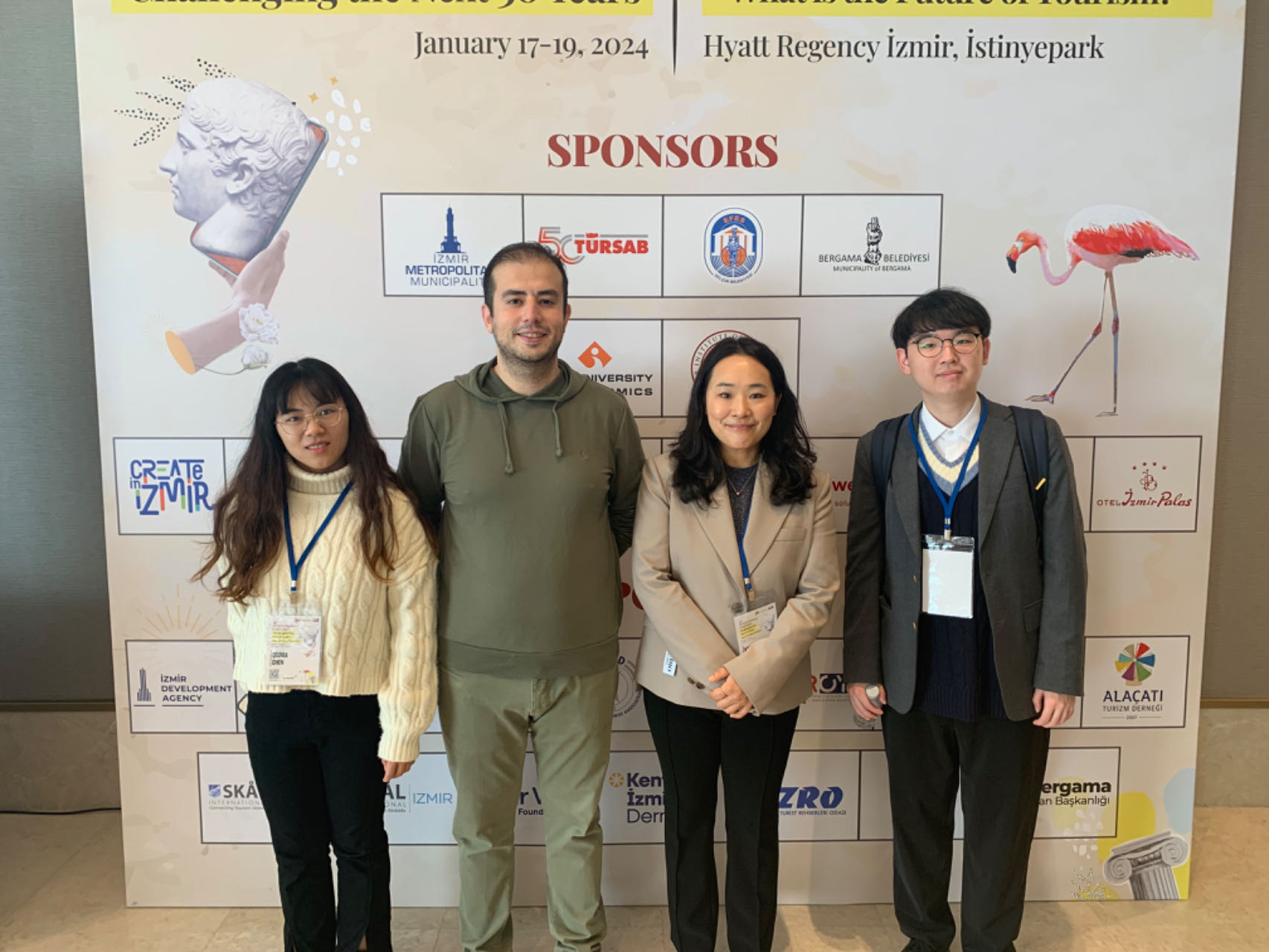The 31st annual conference of the International Federation for Information Technology and Tourism (IFITT) - ENTER2024: eTourism Conference was held from January 17th to 19th in Turkey. The conference gathered researchers, practitioners, and managers at different career stages around the world from IT, tourism management and marketing, management engineering, and related social disciplines, and the ENTER2024: eTourism Conference has developed into an interdisciplinary international exchange platform.

Kyoungmin Lee, Associate Professor of the Department of Culture and Tourism, School of Management, Shandong University, and Chen Qiuxia, PhD student of Class 2023, were invited to attend ENTER2024 in Izmir, Turkey. Chen Qiuxia gave a lecture entitled “A Closer Look of Revenge Travelers”, which introduced the retaliatory travel behaviors of different groups after COVID-19 and the paper used fsQCA to analyze the research data collected in South Korea. The research content, data analysis, and analysis results were discussed with other scholars.
ENTER2024: eTourism Conference this year focused on the opportunities and challenges for tourism development posed by rapidly evolving technologies and changing global conditions. Participants paid close attention to the outstanding research results and applications at the forefront of digitalization, smart tourism, artificial intelligence (e.g. ChatGPT), virtual reality, and brain-computer interfaces, and explored the role of these technologies in optimizing tourism development. The conference features renowned scholars such as Dimitrios Buhalis, editor-in-chief of Tourism Review, Sara Dolnicar, editor-in-chief of Annals of Tourism Research, and Cihan Cobanoglu, editor-in-chief of Journal of Hospitality and Tourism Technology, and other renowned scholars discussed the topic of “WILL AI KILL SCIENTIFIC PUBLISHING? THE IMPACT OF GENERATIVE AI ON TOURISM RESEARCH”. Buhalis pointed out that the existence of generative AI has become a fact and researchers should find appropriate ways to use it; Cobanoglu argued that scholars need to have their core viewpoints and use AI as a supplementary tool; and Dolnicar emphasized the need for boundaries in the use of AI in order to avoid misuse.